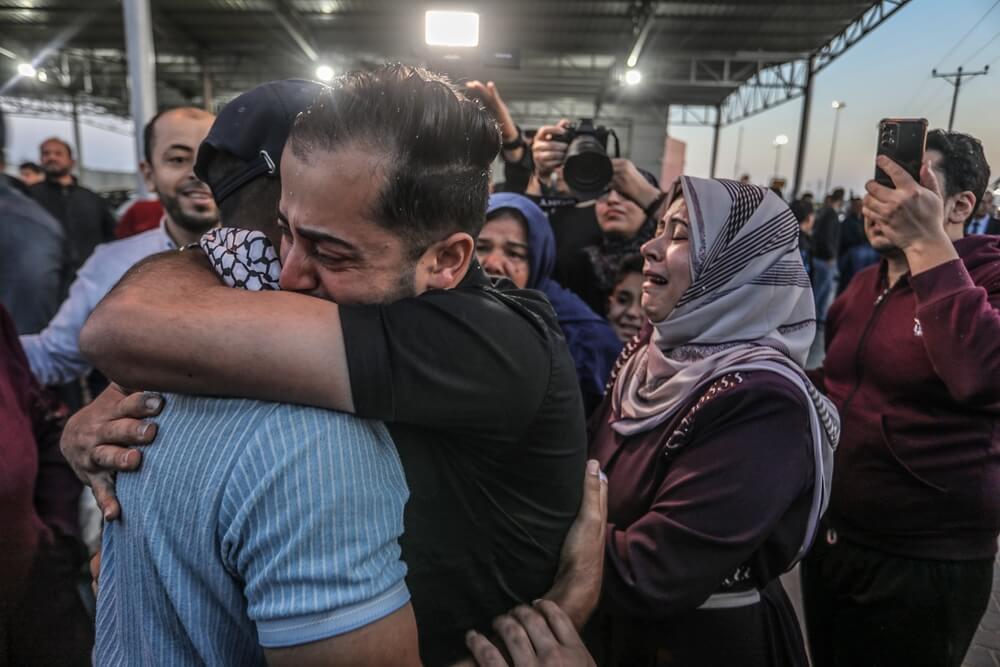As Israel and the Palestinians exchange prisoners and hostages amid a long overdue ceasefire, humanitarians are hoping the Sudan crisis may move up the global agenda.
Genocide, famine, and the use of chemical weapons in “Gaza on the Nile” have so far failed to garner concerted international action to stem a conflict that, like Syria’s recently-ended war, involves multiple outside powers.
Sudan faces the real possibility of de facto partition, splitting Darfur, a region almost the size of France, from the rest of the country amid further collapse of the state. Up to 150,000 people have been killed and more than 11 million others displaced.
“After more than 20 months of conflict, Sudan is Gaza on the Nile,” wrote Payton Knopf, who was deputy special envoy for the Horn of Africa in the Biden administration, in the Financial Times.
“The capital, Khartoum, and other cities and villages are levelled. It is the largest state to collapse in modern history and the largest displacement crisis in the world today. The remaining population is enduring what will probably be the worst famine in Africa in 100 years,” he wrote.
New sanctions
The US did announce new sanctions on 16 January against General Abdel Fattah Al-Burhan, leader of the Sudanese Armed Forces (SAF), which has been battling the Rapid Support Forces (RSF) since April 2023.
Anonymous US officials told the New York Times that Sudan’s military had used chemical weapons, likely chlorine gas, at least twice during the past four months when targeting the RSF, and there is fear they may be in Khartoum. Sudanese officials deny the use of chemical weapons.
The anonymous US officials said members of Congress would be briefed on the use of chemical weapons in a classified hearing next month when it will be up to President Donald Trump to decide what to do next.
The US stopped short of designating the RSF a terrorist group
Earlier this month, the US said the RSF had committed genocide and imposed sanctions on its leader, Lieutenant General Mohamed Hamdan Dagalo, as well as on seven companies based in the United Arab Emirates that traded in weapons or gold for the RSF.
The US stopped short of designating the RSF a terrorist group, but the sanctions throw a spanner at Türkiye’s mediation efforts to improve relations between Sudan and the UAE.
The analogy with Syria
Analysts say the UAE sees mineral-rich Sudan as a way to expand its influence in a strategic location although the UAE has denied its involvement while Libya and Russia have also supported the RSF. The Sudanese army has drawn backing from Egypt and Saudi Arabia.
Other players with an interest in Sudan include Qatar and Israel, as well as countries in the region including Chad, Egypt, Eritrea, Ethiopia, Kenya and South Sudan. For them all to reach agreement is a tall task but may be vital to end the conflict.
The SAF controls a smaller area of Sudan than Assad did in Syria before he was overthrown last month
The sanctions against Burhan came soon after he scored a victory with the retaking of Wad Madani, Sudan’s second-largest city that had been occupied by the RSF for a year. The military success was compared to the retaking of Aleppo by rebels opposed to Bashar Al-Assad, Syria’s former president.
“If Aleppo was the beginning of the collapse of the Iranian dream in the Levant, then Wad Madani is the real beginning of the collapse of the United Arab Emirates’ destructive dreams in Sudan,” wrote Taj Al-Sir Othman, a Sudanese commentator, on X.
Further extending the analogy with Syria, the SAF controls a smaller area of Sudan than Assad did in Syria before he was overthrown last month.
The world’s worst humanitarian disaster
News reporting from Sudan has been sporadic, partly because of logistics and security fears as well as a lack of audience interest, says Bond, the UK network for organisations working in international development. “It is the world’s worst humanitarian disaster and yet it is not getting the aid or the public attention that it deserves,” said a Bond report.
 It is the world’s worst humanitarian disaster and yet it is not getting the aid or the public attention that it deserves - Sudanese refugees
It is the world’s worst humanitarian disaster and yet it is not getting the aid or the public attention that it deserves - Sudanese refugees
The UN last week said the conflict was taking an “even more dangerous turn for civilians” after reports of dozens of people being brutally killed in Al Jazirah state in the south-east and ahead of an expected battle for control of Kharthoum.
“The humanitarian situation in Sudan is worsening, but the international community has done little to address it,” wrote May Darwich of the University of Birmingham. “In addition to its inability to raise sufficient aid for Sudan, the international community has applied no pressure on the UAE. The UN security council has failed to address the credible allegations by its own panel of experts on Sudan over the UAE’s involvement.”
One meagre hope is that if President Donald Trump starts knocking heads together to resolve other conflicts, such as Israel-Palestine, then perhaps Sudan may also benefit. But many more people will likely die before any ceasefire.
“Regardless of where Sudan ranks in Trump’s foreign policy priorities, it remains a crucial question for many US partners in the Middle East and thus will need to be dealt with – either directly or indirectly,” wrote Leena Badri of Chatham House.